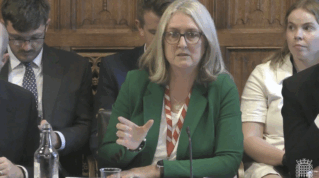Don’t duplicate your bid applications and do look elsewhere for inspiration, writes Steve Morris
In February 2022, the government published its white paper which confirms a commitment to developing a new devolution framework.
This means every part of England that wants a devolution deal will have one by 2030. So, county devolution is born (these are local authorities in non-metropolitan areas of the country).
With over 40 per cent of the population already living in regions with devolved funding for adult skills training, this percentage is only set to increase.
Recently, York and North Yorkshire announced they will be devolved. The next regions to join them are Cornwall, Derby and Derbyshire, Devon, Plymouth and Torbay, Durham, Hull and East Yorkshire, Leicestershire, Norfolk, Nottinghamshire, Nottingham, and Suffolk.
It certainly feels like we have come a long way since the first devolution deal in England was concluded in 2014 by the coalition government. That deal was done with local authorities from the Greater Manchester area.
But the next decade looks like the change will be even more granular and pronounced.
What does this mean for independent training providers?
The word devolution comes from the Latin verb ‘devolvere’, meaning to roll something down, in this case funding.
The benefit of devolution is that local leaders are given the authority to make decisions regarding the funding of education and training, most notably the Adult Education Budget and National Skills Fund. Local leaders are best placed to make decisions on their residents.
This poses new challenges and opportunities for independent training providers.
National or regional independent training providers no longer have one bite of the ESFA cherry but instead need to engage with multiple regional providers of funding.
This brings a logistical challenge which goes way beyond the resource requirement needed to submit multiple bids, where previously just one bid would suffice.
At LCG, we needed to evolve our thinking on how to approach this opportunity.
LCG deliver over £30 million of skills funding per year with the ESFA and across most of the devolved regions.
This is coupled with our portfolio of services that support FE providers across all current and proposed devolved areas to reach their targets, allowing us to support over 200,000 learners a year to achieve nationally recognised qualifications.
While we are always reluctant to tell other providers what they should do, we are always willing to share the learning journey we have been on throughout these changes.
Top tips for a successful devolution bid:
1. Be flexible – each region has their own priorities and not all want the same process or outcome.
2. Think locally and regionally, not nationally – It’s important to focus on the regional challenges that local authorities are looking to solve.
3. Never copy and paste – Duplicating previously submitted bids could be a barrier, as devolution could mean the content is no longer relevant.
4. Listen to your local experts – Boots on the ground are worth their weight in gold so make sure you canvass local opinion in your team.
5. Do your research – Ensure that you are proposing solutions based on local LMI data and not looking at the national picture.
6. Use the right examples – If you have local examples, use them! Even if it means writing new case studies rather than relying on old favourites.
7. Share what has worked elsewhere – Never be frightened to share what has worked in other regions if you do not have direct experience in the region you are bidding for.
8. Support your bid team – to preserve the health and wellbeing of your bid team ensure you have additional resource.

















Your thoughts